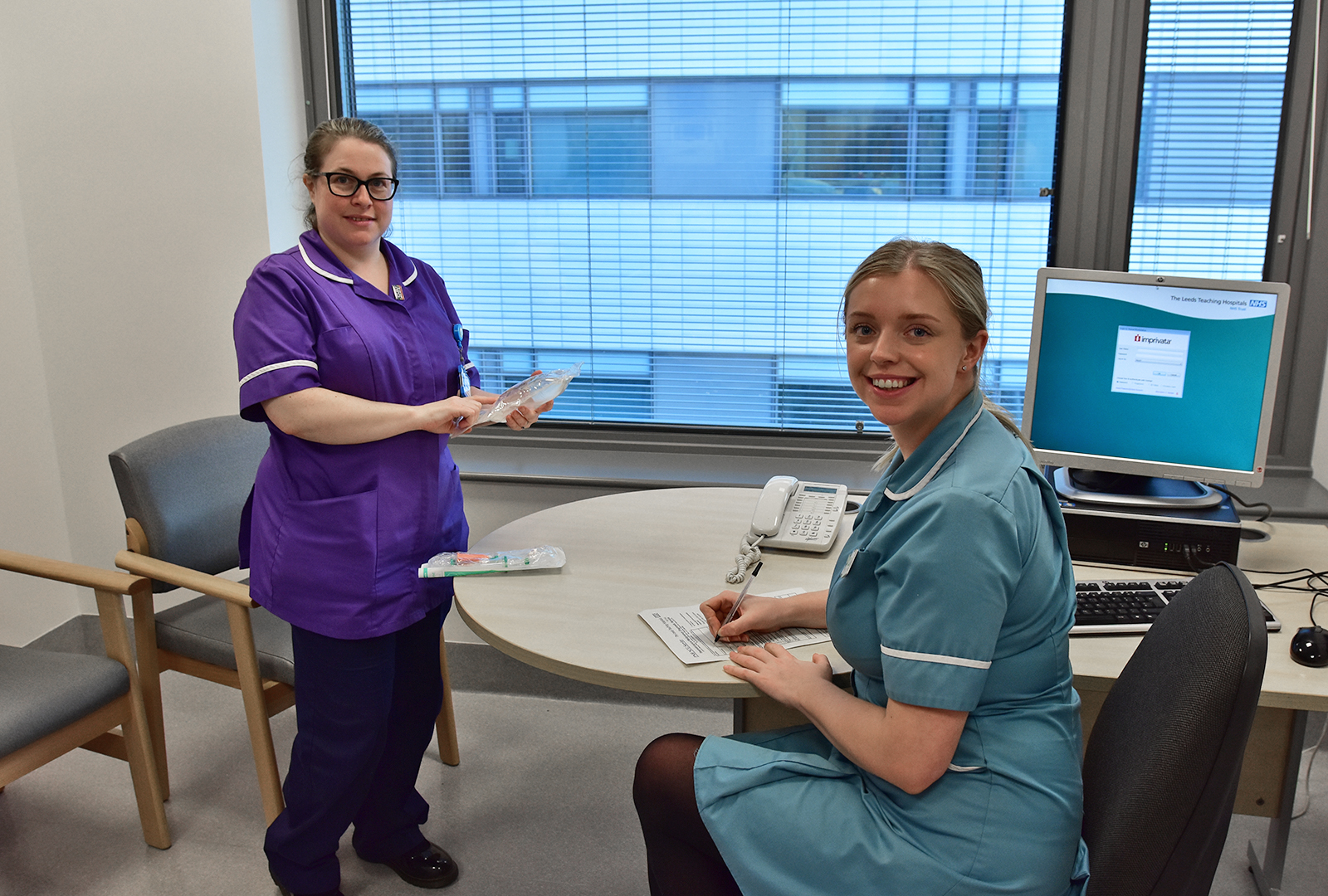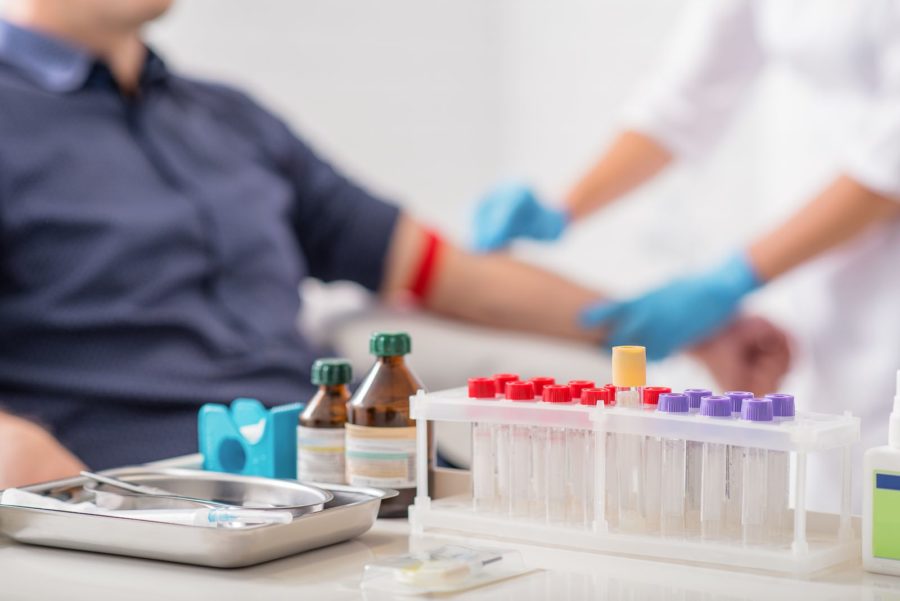
Eculizumab Treatment
Eculizumab (Soliris) is used to treat patients with PNH who need therapy (not all patients do) and who meet the national criteria for treatment.
It was approved for treatment in England in 2007. Eculizumab is an antibody that blocks the part of the immune system called complement, that is responsible for attacking the blood cells in PNH. By blocking complement it reduces or stops the destruction of the PNH blood cells as well as preventing other complications due to unregulated complement activity.
Benefits of treatment:
- Improved life expectancy in certain groups of patients with PNH.
- Reduce or stop many of the symptoms of the disease and thereby improve the quality of life of people treated.
- Reduces the risks of many of the complications of PNH, such as thrombosis, renal failure or pulmonary hypertension (high blood pressure in the lungs)
What are the side effects?
Patients on eculizumab can still clear the majority of infections with other parts of their immune system.
Patients are at a slightly higher risk of getting infections from one particular strain of bacteria, the Neisseria species, which may result in meningitis. This is because eculizumab blocks the part of the immune system that usually protects us from these particular bacteria.
Steps to reduce the risk:
- All patients are vaccinated for meningitis after treatment has started.
- Daily preventative antibiotics.
- Rescue antibiotic pack (usually Ciprolfaxacin).
If patients on complement inhibition are unwell:
In patients who feel unwell or develop a fever, it is important to receive urgent medical attention.
Contact numbers will be provided, including a 24-hour medical emergency number for the PNH Service in Leeds or London. Patients should also receive a local emergency contact number. Patients who are unwell are highly likely to need to attend the local department where observations will be taken and blood tests, including blood cultures to look for bacteria in the blood stream.

Side effects
Most patients tolerate eculizumab extremely well and suffer from no symptoms due to the treatment. The most commonly reported adverse reaction is a headache, which is quite common after the first or second dose of eculizumab, but usually is not a problem with subsequent doses. Dizziness, nausea and a temperature are very occasionally reported, each occurring in around 1 in 20 (5%) of people.
How is Eculizumab given?
Eculizumab is given into the bloodstream (intravenous), through a small needle in the hand. It takes approximately 30 minutes to administer and will be given by a nurse. The first infusion is usually given in hospital and subsequent ones will be in your own home with the nurse visiting you (see Home Care Service below).
The treatment is given once a week at a dose of 600 mg for the first 4 weeks, then 900 mg every 2 weeks from the fifth week onwards. A few patients require a higher dose of eculizumab and this will be monitored and increased by the PNH team.
It is important that the treatment is given every 14 days and no doses are missed. However there is some flexibility, (up to 2 days) but this must be agreed with the PNH Centre.
If you are booking a holiday please call the PNH team to discuss your holiday dates giving as much warning as possible (at least 2 months is ideal if we need to modify your treatment around the holiday). If you are looking at travelling for longer than 2 weeks, it may be possible to arrange treatment in another location in the UK or abroad, but this usually requires at least 2 months to sort out the logistics (see Travel information).
Eculizumab Home Care Service
For patients receiving treatment with Eculizumab in the UK, there are two home care services – Sciensus and Alcura – enabling treatment to be given at home rather than in hospital. The home care teams work as an extension of the PNH team.
The transfer to home care will be discussed during one of the visits to see the PNH team. The home care customer service team will then telephone to make arrangements for the first infusion at home. A nurse will administer the treatment. They will make contact at least 24 hours before the next infusion is due to be administered to arrange a convenient time. The nurses work closely with the PNH centre
Biosimilar -Bekemv and Epysqli
A biosimilar medicine is highly similar to another biological medicine that is already authorised for use. Bekemv and Epysqli are both biosimilar medicines available for prescribing in place of Soliris (eculizumab). Clinical trials have shown no clinically meaningful differences in terms of effectiveness and safety. They have been approved for treatment in England in 2024.
The NHS, for any conditions where applicable, have utilised biosimilar medicines when available. This now is applicable for PNH, and biosimilars have been approved for use.
If you are receiving eculizumab, it is possible there will be a plan to change this is a biosimilar. As this is comparable to eculizumab you should not experience any differences in your PNH management.
Bekemv and Epysqli like eculizumab are an antibody that blocks the part of the immune system called complement, that is responsible for attacking the blood cells in PNH. By blocking complement it reduces or stops the destruction of the PNH blood cells as well as preventing other complications due to unregulated complement activity.
Benefits of Treatment and side effects:
The safety of Bekemv and Epysqli have been evaluated, and based on all the studies carried out, the side effects of the medicine are considered to be comparable to those of the reference medicine Soliris.
Administration is the same as Soliris.
Homecare will continue with Bekemv and Epysqli with Sciensus and Alcura – enabling treatment to be given at home rather than in hospital.
